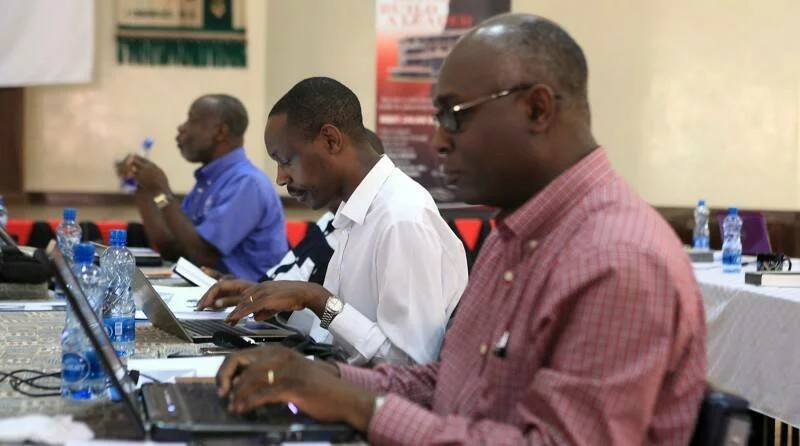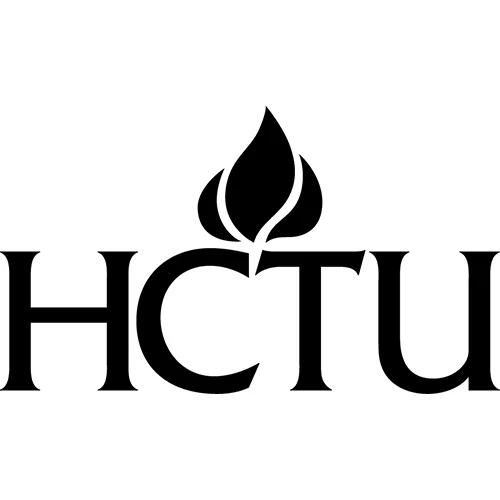Guest post by Maggie Gitau
Crazed by Nollywood
A couple days ago, a friend told me of an interesting incident that occurred in her home in Nairobi Eastlands. A neighborhood boy solicits the attention of her 15-year-old daughter. Mother discovers the illicit bond through a rather racy text message sent on the mother’s phone, which the girl had been allowed to keep on account of a household chore. Mother seeks explanation, but daughter pulls a weird trick—she claims to hear voices in her head and see strangers demanding to eat her heart. She runs all over the block as if pursued by deranged invisible forces. Daughter has everyone confounded but not her mother, for she knows her daughter well. This last school break, this girl has spending inordinately large amounts of time watching TV, spellbound by Nollywood movies that have become a daily staple on our TVs. From them she has imbibed rather strange ideas on the dark world of witchcraft.
Now, for those who don’t know, Nollywood is Nigeria’s highly successful version of Hollywood. According to Professors Kunyihop, Asamoah-Gyadu, and Opuku Onyina, who have carried out research on this area, the Nollywood movie industry is a major carrier of ideas on witchcraft. Like most everything else in mass media, the subject is sensationalized to scratch at the basest instincts of viewers. Nollywood ideas on witchcraft appeal to the primal imagination of many Africans, filling gaps left by human curiosity, gossip from traditional backgrounds, and biblical vagueness on the subject. (Of course, the Nollywood industry also has many great ideas that connect powerfully with African worldview, thus its successful connection to the African realities).
Life Unusual at AIU & the Colloquium on Witchcraft
While Kenyans were watching grass grow during the vote tallying process, AIU lived an unusual life. The Intercultural Studies—Missions Department together with the departments of Theology, Education, and Biblical studies and in collaboration with Trinity Evangelical Divinity School (TEDS) hosted over 40 scholars from around the world for a four-day forum. Among those who joined us were leading scholars on African Christianity such as Opuku Onyina (Chancellor, Pentecost University College, Ghana), Yusufu Turaki (ECWA-Jos, Nigeria), Kwabena Asamoa-Gyadu (Trinity Theological Seminary, Ghana), Samuel Kunhiyop (ECWA, Jos-Nigeria), Joseph Mavinga (UNISA-South Africa). Others were Dana Harris (TEDS), Robert Priest (TEDS), Timothy Stabell (Briercrest College and Seminary, Canada), Douglas Sweeney, (Director of Jonathan Edwards Center, TEDS) and many more. The colloquium, led by Professors Tite Tiénou (TEDS), Robert Priest (TEDS), and Steve Rasmussen (AIU) was a part of a growing effort to address the escalating problem of witchcraft accusations all over Africa. The Center for World Christianity was represented by several students, and some of our professors.
Although it is an ongoing reality in communities and churches all over Africa, witchcraft is one of the things we don’t openly talk about. We saw a video of three alleged witches, people in their prime, being brutally lynched in broad daylight in Kisii, Kenya. Justus Mutuku told of his evangelistic outreaches among high school youth. Students show him charms given to them by a person of power to protect or help them succeed—meaning they or their parents have dabbled with powers that may or may not involve witchcraft. One participant told of a highly ranked, long serving pastor in a well-known denomination. Yet at the claims of an alleged witch that he himself was a witch, the pastor went down disgracefully. Haruna Tukurah narrated cases of orphanage children accused as child witches and consequently tortured by relatives. A refugee camp in Northern Ghana is home to over a thousand women who have fled their homes at the pain of death after accusations. All over Africa, print media is rife with accounts of witchcraft-related murders.
The church, too, is implicated, both as an answer and problem. Many popular charismatic ministries are built around the issues of deliverance and exorcism. Even the legal system is in a bind. A high-court judge shared her experience. In certain parts of the country, courts are inundated with witchcraft accusation-related murders. Close blood relatives murder kin on suspicion that one has caused harm through witchcraft. For the judge, dispensing a legal sentence is not enough. She calls the church to lead in providing better answers to this problem, including a place of refuge for the accused.
Fear drives the violence that follows the accusations. It is the same kind of fear that underlies what Professor Mark Shaw referred to as master narratives. The American context in early 20th century, where African Americans were lynched because of racial superiority is a case in point. The holocaust of Jews in Nazi Germany was driven by a similar narrative. Thus in some sense witchcraft accusations reflect the deep-seated human fear of that which is different and threatens our selfish interests; the seething jealousies, hatreds, angers against others. But it goes deeper than fear. Professor Kunhiyop of ECWA Theological Seminary noted that whatever reservations one might have about it, witchcraft is real and is a strong religious belief system. Religious beliefs don’t make sense to outsiders-looking-in, but to practitioners it has its own internal logic.
My friend, whose experience I told at the start has decided on no more Nollywood in her house. But the crisis is more complex than derangement among enchanted movie buffs. Witchcraft and its accompanying accusations threaten the very soul, the social fabric of our African continent. It has many consequential tags at its heels. Public shame, being ostracized, banishment, and the ultimate sentence: death by lynching. One participant noted that the nature of the accusations preempt the possibility of family reconciliation, self-defense, and justice. Even where consequences are less brutal, accused or suspected persons cannot go to the market-square, fetch water with others, visit with neighbors, or look after grandchildren. Further, Professor Caleb Kim observed that accusations complicate and sometimes forestall the rudimentary gospel of Christian forgiveness.
The clarion call to Christian theologians and pastors was articulated by Professor Yusufu Turaki. Pastors who minister to victims of witchcraft cannot afford to rely on “holy intuition” and biblical proof texts. We need a theologically sound understanding of issues surrounding witchcraft. Scholars must help the church think through these issues. For me, Tite Tiénou and Keith Ferdinado singly articulated the sum of it: African Christians must have a bigger vision of the God revealed in scripture. Just like electricity fades against the brightness of sunshine, the revelation of the all-loving, all-knowing, all-powerful God makes references to powers of the dark world fade in comparison. Rather than look into the opaque mystery of evil, let us focus on the luminous mystery that is Christ. Turn your eyes on Jesus, look full in his wonderful face, and witchcraft, along with many other things will turn strangely dim.
This first colloquium is part of a longer journey. At the end of the consultation, individual researchers and several teams were tasked to work on particular issues that were raised during discussions. The journey will continue towards helping the church, theological institutions and activists to develop pastoral responses, educational curriculums and interventions. A follow-up conference will be held in due course of time. Watch this space for more to come.





Comments
Be the first one to make a comment!